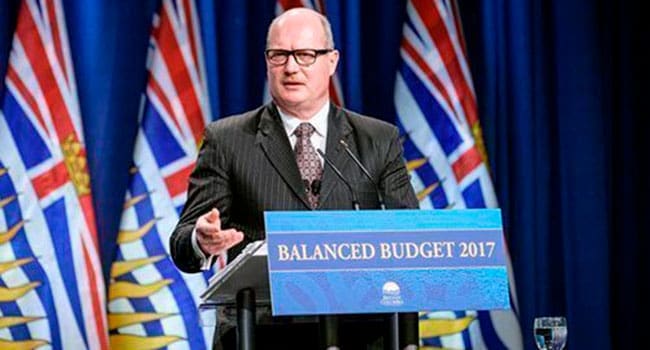 British Columbia’s NDP government has just treated residents to its first throne speech, followed by an interim budget to carry it through until February, which is the usual month for annual budgets.
British Columbia’s NDP government has just treated residents to its first throne speech, followed by an interim budget to carry it through until February, which is the usual month for annual budgets.
Looking at all the good things being promised, the budget makes one think of Christmas in September.
The new government is being bountiful, offering much that’s needed. Everything will be helpful to the recipients.
Here’s a partial list of what the New Democratic government plans to do to support the province and its citizens. It’s difficult to find fault with any one item. The government says it will:
- help regions affected by forest fires;
- deal with fentanyl deaths and opioid-related issues;
- increase income support and disability payments;
- increase earnings exemptions for those on income support;
- restore transit passes to disabled;
- help renters by adding rental units and building modular housing;
- provide universal child care;
- increase resources for kindergarten-to-Grade-12 education;
- increase resources to health care;
- eliminate tuition for adult basic English as second language education and for children in government care;
- cut Medical Service Plan (MSP) premiums in half;
- remove provincial sales tax (PST) from electricity sales;
- remove bridge tolls.
This list reminds me of being on boards of not-for-profit organizations that do so much good in our society. A proposal would be made and I, as the economist on the board, would be asked my opinion. It often was as follows:
‘That’s a great idea. It provides a very much needed service that’s not offered elsewhere. It’s within our mandate and will help our target groups. And, no, we can’t do it because we don’t have the money.”
That’s what I want to say to the B.C. government. Every item above involves increased spending that will total billions of dollars or, at the very least, reduced revenue.
We’re promised a budget where government spending won’t exceed its income. In the short term, there’s the surplus that the new government inherited from its Liberal predecessors, but this won’t last. Nor does the budget indicate any major new revenue sources.
Sure, taxes on incomes over $150,000 will go up by just over one percentage point, but few British Columbians have incomes that high. Corporate tax rates will rise one percentage point, but the small business tax rate will drop from 2.5 per cent to 2.0. There are many more small corporations than large ones.
Not putting in a bridge to replace Vancouver’s Massey Tunnel will save billions. But an alternative is still essential and that will probably cost at least that amount. There are no visible signs of a significant increase in government revenue.
The government expects that some of the changes will lead to increased growth and, thus, more tax revenue. They mention that removing the PST on electricity should attract more corporate activity. If a corporate executive was thinking of doing business in B.C., which would be noticed first: a reduced tax on electricity or increased taxes on corporate earnings, and on high-paid executives and technical specialists?
We can’t add up the exact changes in expenditures and revenues of all that the government plans to do. Details aren’t always provided, nor are exact time frames. They may not yet even be determined. But a betting person would lay odds that the provincial budget is heading into the hole.
Canadians are regularly chided for living beyond their means, spending more than their incomes, burdening themselves and jeopardizing their future by accumulating unmanageable and unsustainable debt. In B.C., it looks like the government is picking up our bad habits.
So what’s a government to do?
This government can’t be Santa Claus bringing everyone everything they desire all in one day. But it doesn’t have to be the Grinch, stealing Christmas altogether. Even when everything can’t be done, something can always be done. Now the NDP must make the hard decisions we elect governments to make.
First, they must decide which are the most important and immediate items on their wish list, prepare a detailed cost/benefit analysis, and create a time line and implementation plan, with evaluation to follow up. Once this leads to a successful outcome, other activities can be added.
British Columbia voters will give much more support to a government that provides successful outcomes than one that offers unfilled promises and growing debt.
Troy Media columnist Roslyn Kunin is a consulting economist and speaker.
The views, opinions and positions expressed by columnists and contributors are the author’s alone. They do not inherently or expressly reflect the views, opinions and/or positions of our publication.

